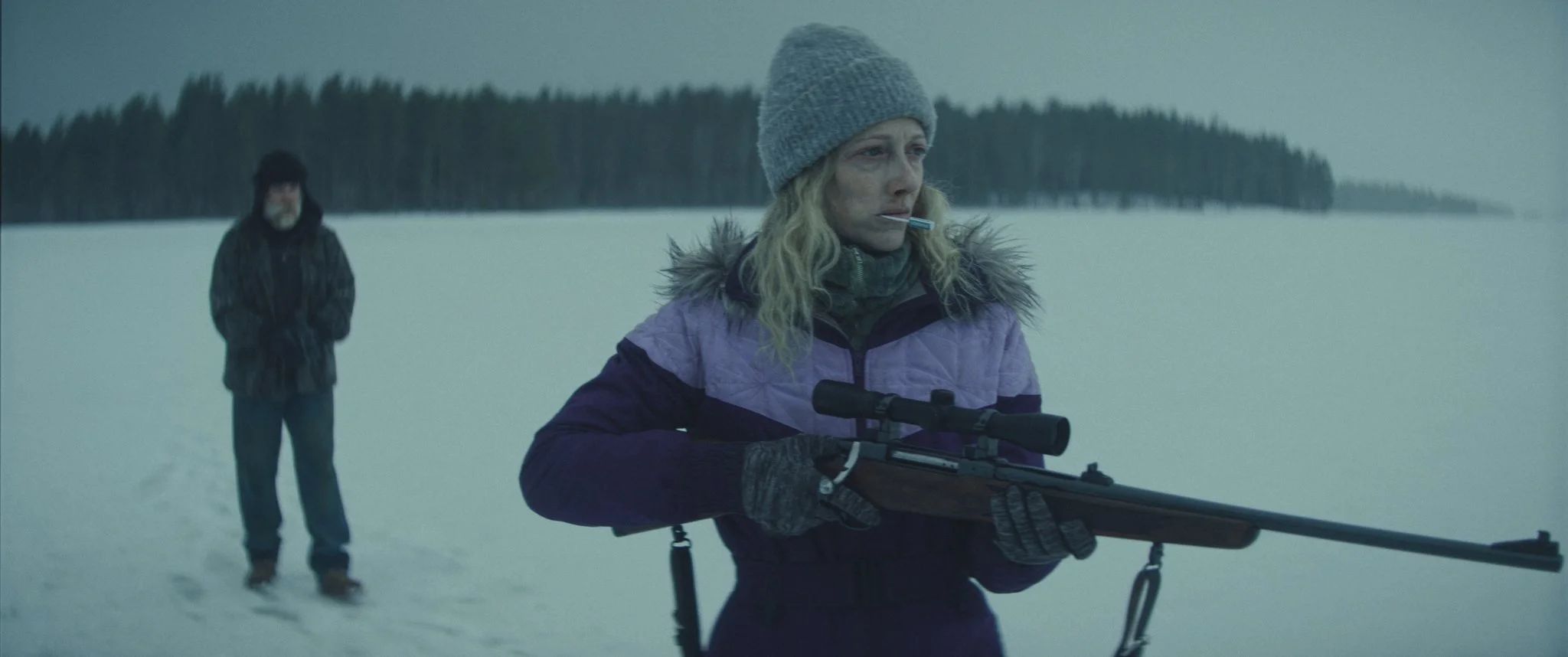Dead of Winter
Directed by Brian Kirk
★★★
Grief is the marrow of Dead of Winter, and it’s where the film is at its most convincing. This isn’t just another snowbound survival tale—it’s a study of how loss reshapes instinct, how silence can weigh more than dialogue, and how holding on to memory can be both an anchor and a burden. That emotional core is where the film thrives.
Emma Thompson gives a performance that pulses with quiet devastation. Her character is defined not by grand gestures but by the way sorrow lingers in small, almost invisible movements—hesitation, weariness, the struggle to summon resolve. It’s a portrait that feels lived-in, granting the story its strongest sense of authenticity. Thompson brings honesty and dignity to a role that could easily have slipped into melodrama.
Judy Greer, by contrast, injects volatility and sly humor. There’s a playfulness in her menace, a strange charisma that makes her both off-putting and magnetic. She embodies the film’s tonal tension—where levity jostles against darkness—and she makes it work. Her performance highlights one of the movie’s successes: the ability to allow humor and dread to coexist, proving that even in life’s bleakest stretches, absurdity never disappears.
The atmosphere, too, is powerful. Snow and silence are used like weapons, sharpening isolation into something almost tactile. The world outside feels vast and unforgiving, and the film wisely leans into that indifference. Where it falters is not in building mood or emotion, but in stitching the thriller mechanics around them.
For all its understanding of grief, the film shows far less sophistication when it pivots to the practical beats of survival and rescue. Too often, tension is sustained by choices that clash with the careful character work already established. It isn’t that the protagonist stumbles—fallibility would be welcome—but that the stumbles feel scripted rather than organic. The thriller framework, in these moments, betrays a kind of sophomore logic: engineered mistakes, contrived delays, stakes inflated by lapses that don’t ring true.
This imbalance creates a divide. On one side is a film deeply wise about mourning, endurance, and the stubbornness of the human spirit. On the other is a thriller that doesn’t fully trust that wisdom to carry it, defaulting instead to less thoughtful devices to crank tension. It’s not that these sequences ruin the film—they don’t—but they expose its uneven intelligence. The movie is emotionally mature yet mechanically insecure, leaving the viewer suspended between admiration and frustration.
Still, what lingers after the credits is not the contrivances but the humanity. The relationships, fleeting as they may be, feel textured. The humor, when it surfaces, is cutting in the best way. The grief, always, feels real. Dead of Winter is less impressive as a rescue thriller than it is as a meditation on what keeps us moving when life has stopped giving us reasons. It’s wise, flawed, and moving in equal measure—a film whose heart is truer than its logic.

